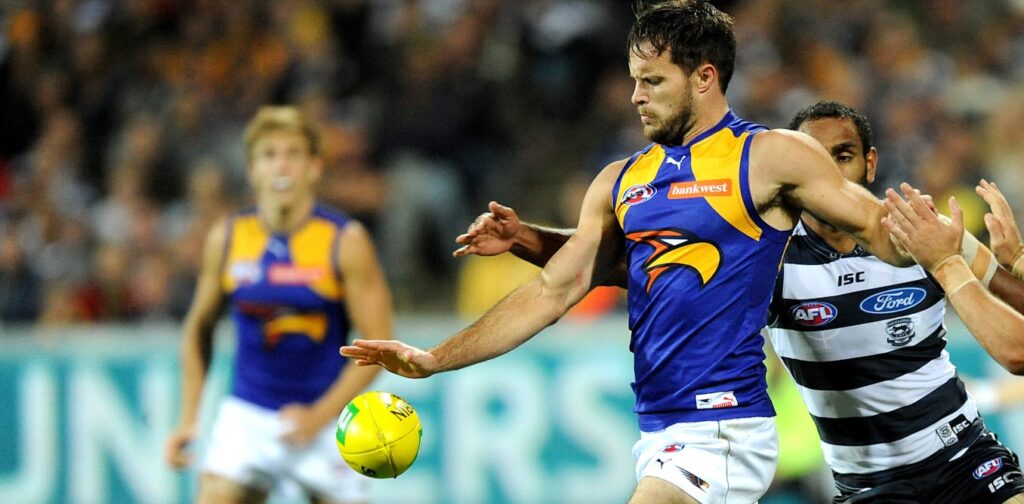
In a significant development for both the Australian Football League (AFL) and the LGBTQIA+ community, former West Coast player Mitch Brown has publicly come out as bisexual. This announcement, made in a groundbreaking interview, marks a pivotal moment for gay and bisexual men in one of Australia’s most storied sporting codes. The news arrives amid a challenging period for the AFL, which has faced its sixth incident of homophobia in the men’s competition since the league intensified its crackdown on discriminatory language.
Brown’s revelation is not just a personal milestone but a landmark for inclusivity in sports, particularly in the AFL, where debates around homophobia have often overlooked the voices of gay and bisexual men. His announcement signifies a shift towards greater acceptance and visibility within the sport.
Male Athletes Breaking New Ground
Australia is witnessing a gradual increase in male athletes coming out at the highest levels of sport. Notable figures include Josh Cavallo of Adelaide United in the A-League and Isaac Humphries of the Adelaide 36ers in the National Basketball League. Despite these advances, the AFL has remained one of the last major sporting communities without an openly gay male player, raising questions about the underlying reasons.
While societal attitudes towards lesbian, gay, and bisexual individuals have generally become more supportive, these changes are not always mirrored within sporting organizations. Many still lag behind broader societal progress, as evidenced by recent incidents of homophobia in the AFL, such as the one involving Adelaide’s Izak Rankine.
“In the world of football, being an openly gay player is a very toxic place […] coming out brings all this attention, it brings all this pressure, brings all this negativity.” — Josh Cavallo
The persistence of homophobic attitudes in sports not only affects those who identify as LGBTQIA+ but also impacts heterosexual individuals. The use of “gay” as an insult perpetuates a culture of fear and stigma, pressuring athletes to conform to traditional notions of masculinity and sexuality.
Bisexual Athletes and the Fight for Visibility
Bisexual individuals represent the largest segment within the LGBTQIA+ acronym, yet they remain the least visible in media discussions about inclusivity in sports. Brown’s coming-out story sheds light on the unique challenges faced by bisexual athletes, who often encounter stereotypes and myths that invalidate their identities.
Research highlights the ongoing struggles of bisexual athletes, who frequently have to navigate misconceptions about their sexuality. Brown’s experience of having to repeatedly disclose his identity to teammates, coaches, and others underscores the continuous nature of coming out in sports.
While women’s sports have made strides in inclusivity, with positive impacts on athletes’ mental health and participation, men’s teams and clubs have yet to fully embrace this responsibility. The lack of openly gay and bisexual male role models in sports, including the AFL, remains a significant barrier to progress.
Young People Need Role Models
The “Free to Exist” report reveals that young LGBTQIA+ individuals feel overwhelmingly positive about public role models in sports. Figures like AFLW players and soccer star Sam Kerr are celebrated for their representation across media platforms, normalizing LGBTQIA+ identities and relationships.
76% of young gay men in sports have witnessed homophobic language, indicating a persistent culture of exclusion.
However, the absence of male gay and bisexual role models in sports highlights a gap that needs to be addressed. Positive representation is crucial for affirming young people’s identities and fostering a sense of belonging.
Mitch Brown’s courageous decision to come out publicly is a step towards closing this gap. It presents an opportunity for the AFL and other sporting codes to reflect on their inclusivity practices and work towards a more welcoming environment for all athletes.
As the AFL continues to grapple with incidents of homophobia, Brown’s bravery serves as a beacon of hope for change. His story is a reminder of the far-reaching impact that visibility and acceptance can have, not only for those within the sport but for anyone coming to terms with their sexuality.






